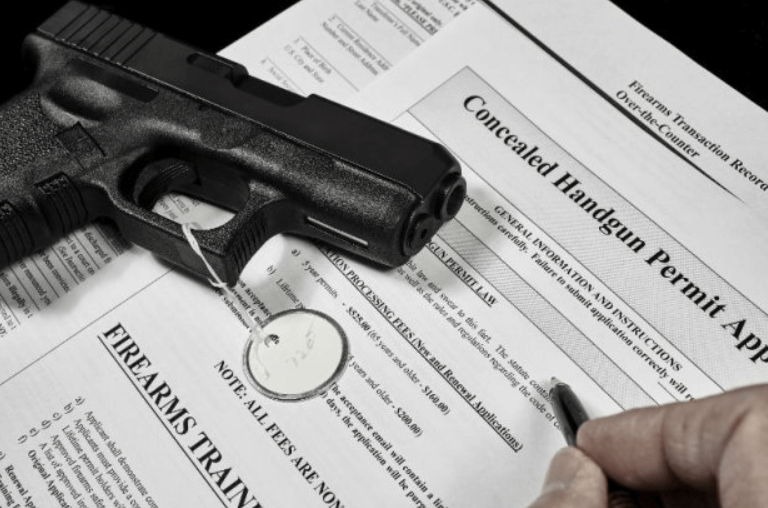5 Reasons to Get a Conceal Carry

Guns Don't Kill People, They Save Them
Liberty isn’t the only thing likely to be lost when gun laws are passed to appease emotions over reason, evidence, logic, and rights. Lives will most assuredly be lost, too. Lots of them.
In short, the Second Amendment states that as an American citizen, you have the individual right to arm yourself. The amendment also firmly establishes that the government cannot infringe on that right.
1. It’s your 2nd Amendment right
Many of us forget about our rights until they are in jeopardy. Exercising your rights as an American citizen is a privilege, we all should not take for granted. The right to own guns and defend yourself with them remains a contentious topic. The right to self defense in a deeply established principle in American law and culture. To some degree, suicides will occur regardless. So will rape, murder, robberies, and carjackings. While guns might make these crimes easier to commit, they are not the root cause.
2. It may deter crime from happening
According to an FBI crime data study in 2000 by Dr. John Lott, the presence of shall-issue laws in the United States contributed to a 8.5% reduction in murders, a 7% reduction in aggravated assault, a 5% reduction in rape, and a 3% reduction in robbery.
I checked online and found some fascinating numbers. A good website with footnotes and references to authoritative sources is GunFacts.info. There I learned the following:
- Guns prevent an estimated 2.5 million crimes a year, or 6,849 every day. Most often, the gun is never fired, and no blood (including the criminal’s) is shed.
- Every year, 400,000 life-threatening violent crimes are prevented using firearms.
- 60 percent of convicted felons admitted that they avoided committing crimes when they knew the victim was armed. Forty percent of convicted felons admitted that they avoided committing crimes when they thought the victim might be armed.
- Felons report that they avoid entering houses where people are at home because they fear being shot.
- Fewer than 1 percent of firearms are used in the commission of a crime.
John Lott, author of the book, “More Guns, Less Crime,” is president of the Crime Prevention Research Center, another outstanding source for info on this subject. He writes:
"By 66 percent to 32 percent, economists and criminologists answer that gun-free zones are “more likely to attract criminals than they are to deter them.” A 60 percent to 40 percent margin thinks that guns in the home do not increase suicides. And a 62 percent to 35 percent spread says that guns are used in self-defense to stop crime more often than in the commission of crime."
3. Concealed carry allows for a faster response during an emergency situation
The average response time to an emergency call for police officers is about 11 minutes. When there are specific emergencies reported, such as a school shooting, there may be laws in place that require a response in four minutes or less. Concealed carry makes it possible for average citizens to respond as necessary.
31.1% of all gun owners who took the survey said that they had used their firearm in self defense at least once “even if it was not fired or displayed” (not including law enforcement, security, or military service). In addition, the majority of those answering in the affirmative had used their gun more than once in self defense. Extrapolating this 31.1% data out to all gun owners in America would mean that roughly 25.3 million adults have used a firearm to stop a crime or protect themselves at least once in their life.
No shots were fired in 81.9% of those defensive use cases. 50.9% of the time, displaying the firearm was sufficient to scare off the attacker; 31% of the time, simply telling someone they were armed prevented the attack from taking place. Only 18.1% of the time was firing the gun required to defend their life.
79.1% of these self-defense gun uses reportedly occurred inside the owner’s home or on their property, while 9.1% happened in a public place.
A majority of gun owners surveyed (56.2%) claimed to have open or concealed carry a handgun for self defense in some circumstances. This translates to roughly 45.8 million Americans carrying firearms at some point.
4. With Concealed Carry, your carry your own background check with you
To obtain a license in most states, fingerprinting and background checks are required. These are routinely updated, so any unlawful conduct is flagged and the license can be rescinded. So every day, the license represents a fresh and up-to-date background check. Due to reciprocity agreements between states, a concealed carry permit may be recognized in up to 84% of the US. This means that if you travel to a state where you are not a resident, and that state holds a reciprocity agreement with your state-issued permit, you may legally carry in that state.
5. The window is open for a limited time.
There has never been an easier way to secure your concealed carry certification online. You may lose the right to secure your certification online at any time. Lock in your certification while it is still legal.
Here's How You Can Qualify:
Step 1: Simply click here to visit the US Concealed Online site
Step 2: Watch the Video
Step 3: Fill out a quick survey to start getting your concealed carry permit today
Step 4: Complete any additional state requirements
Step 5: Download Your Certificate
